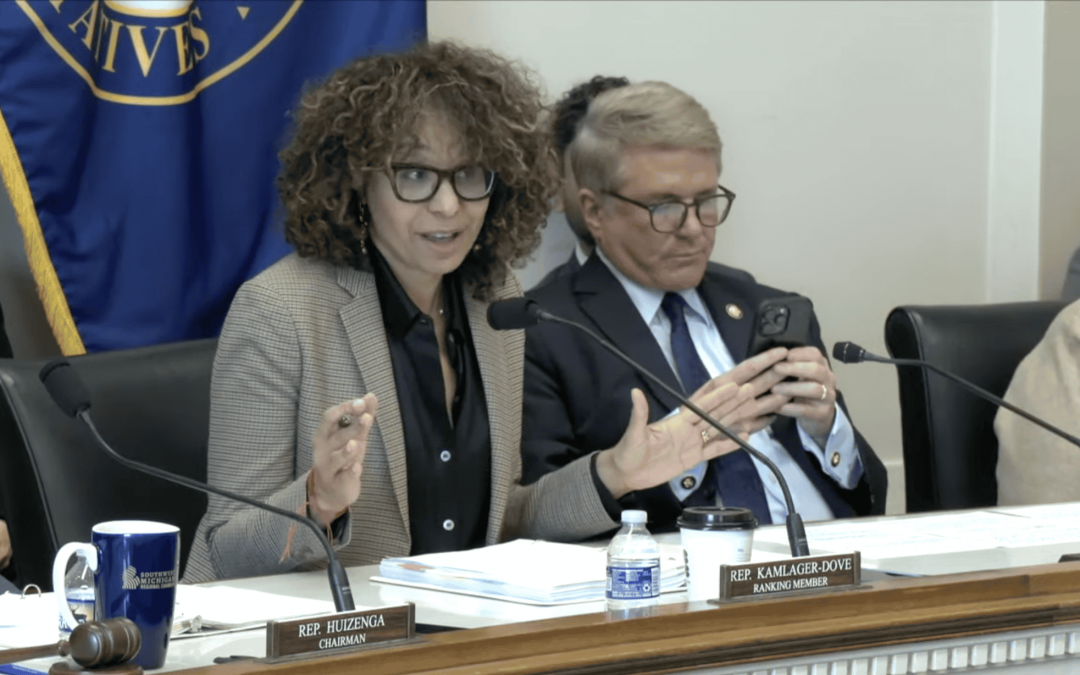WASHINGTON – Lawmakers scrutinized U.S. export controls on semiconductor manufacturing equipment amid growing concern that loopholes are allowing China to advance its chipmaking capabilities faster than intended.
“America must close these loopholes to stop the Chinese Communist Party from leveraging their technology for its military modernization efforts and pursuit of technological dominance,” Subcommittee Chair Rep. Bill Huizenga (R-Mich.) said in his opening statement at the House Foreign Affairs Committee.
Witnesses warned that gaps in the system — from insufficient allied controls to weak enforcement and staffing shortages at the Bureau of Industry and Security — are hindering U.S. efforts to enforce chip export rules, while China continues expanding its semiconductor manufacturing capabilities.
Dean Ball, a senior fellow at the Foundation for American Innovation, said that while the U.S. has successfully restricted China’s access to the most cutting-edge chips, Beijing continues to acquire the equipment needed to manufacture them — including deep ultraviolet (DUV) immersion lithography machines, which create intricate layers of the microchip circuit and are fundamental to the process.
He noted that while the U.S. imposes strong export controls on domestically made equipment, it has failed to align controls with international allies whose companies continue to export to China, including Dutch manufacturer ASML, the world’s largest supplier of DUV immersion lithography machines.
“We have set on the path of denying China access to the most sophisticated machines in the world … but we have failed to deny access to something perhaps even more important: the machines that make the machines,” Ball said.
The result, Ball said, is the “worst of both worlds,” as American firms lose revenue while China continues to gain technological ground.
Chris McGuire, senior fellow for China and Emerging Technologies at the Council on Foreign Relations, stressed the need for the U.S. to impose broad restrictions on the export of all semiconductor manufacturing equipment capable of advanced production to China.
He also recommended expanding extraterritorial controls to the 33 allied countries currently exempt, including the Netherlands and Japan. This would apply the foreign-produced direct product rule, which restricts exports of foreign-made products that contain U.S. technology or are produced using U.S. equipment, to these nations.
“These controls have proven effective and would be nearly impossible for any company to design around, given ubiquity of U.S. technology in the semiconductor supply chain,” McGuire said.
Beyond the technology itself, lawmakers also questioned whether the United States has the capacity to enforce its own export rules.
Rep. Julie Johnson (D-Texas) pressed witnesses on recent personnel turnover at the Commerce Department’s Bureau of Industry and Security, the agency responsible for export licenses and enforcement compliance. She expressed concern that the changes have left the bureau under-resourced at a moment when semiconductor export controls are becoming increasingly complex.
Kevin Wolf, a former Commerce official, said the staffing gaps reflect broader federal restructuring and layoffs under the administration. He encouraged committee members to find ways to staff BIS with more subject matter experts, Mandarin speakers, people with intelligence experience and more.
“I’m very concerned about the talent drain because we can have all the policies in the world but if we don’t have the talent that’s smart enough to figure out how to enforce them and how to enact them then we’re not going to get very far,” Johnson said.
In her remarks, Ranking Member Rep. Sydney Kamlager-Dove (D-Calif.) argued that Trump has shifted export controls from a national security tool to a negotiating tool, citing the U.S.–China trade war and retaliation from Beijing on rare earth exports. She warned that new restrictions could now be seen abroad as a restart of the trade war rather than a security measure.
Kamlager-Dove also criticized Trump’s recently announced agreement with the United Arab Emirates and Saudi Arabia, which includes the sale of 70,000 AI chips, suggesting it could put U.S. national security at risk.
“Our national security should never be negotiable and it should also never be for sale,” she said.

